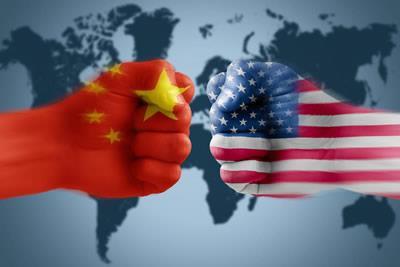Tariffs, maritime disruption and regional conflicts are reshaping global commodity flows, as a Willis report highlights the sector’s exposure to escalating geopolitical and geoeconomic risk
Commodity traders are facing renewed geopolitical turbulence as conflicts, tariffs and shifting supply chains combine to reshape the global trading landscape, according to a new report from Willis, a WTW business.

The study, Managing the New Economic Risks in Commodity Trading, found that traders are grappling with “deglobalisation pressures” and rising volatility that could both threaten operations and create profit opportunities for those able to adapt quickly.
Recent market swings triggered by US tariff threats against China illustrate the new reality, the report said, raising questions about how prepared trading firms are for unpredictable trade policies.
Willis and Oxford Analytica compiled the findings from a panel of senior risk and external affairs leaders, creating a “global risk radar” that maps the most pressing threats to commodity trading.
Tariffs emerged as the top concern, described as “the biggest economic threat to commodity traders, reshaping trade flows, freezing decision-making and injecting unprecedented policy uncertainty”.
China’s economic slowdown was ranked second, with Willis noting that “China remains the largest buyer in most commodity sectors” and that weakening growth or deflation could quickly impact global balance sheets.
Climate change also featured prominently, with the report, warning that shifting weather patterns are “altering seasonal fuel demand, increasing pesticide use and straining river-based logistics”.
War risk around Ukraine and the Black Sea continues to weigh on supply security, with “Russian grey zone escalation and broader militarisation raising fears of renewed trade disruption”, according to Willis.
Maritime disruption was another leading risk, as the report described “drone-enabled attacks, grey zone tactics and weakening global security guarantees” as key factors driving up costs and threatening the flow of goods.
The report also identified emerging risks with the potential to escalate, including European sustainability regulation and instability in global bond markets as post-pandemic stimulus policies unwind.
Evan Freely, global head of Willis credit risk solutions, said trade was becoming more complex but remained essential to the global economy.
“The world has entered a more protectionist era in which many governments and businesses are moving to onshore production of goods,” Freely said.
“However, trade remains as vital as ever, especially with commodities that are simply not present, or very difficult to produce, in many geographies.
“The right risk management solutions are a vital enabler in the commodity trading sector to prevent shortages and supply chain issues and protect operations,” he added.
The complete report can be downloaded here.










No comments yet